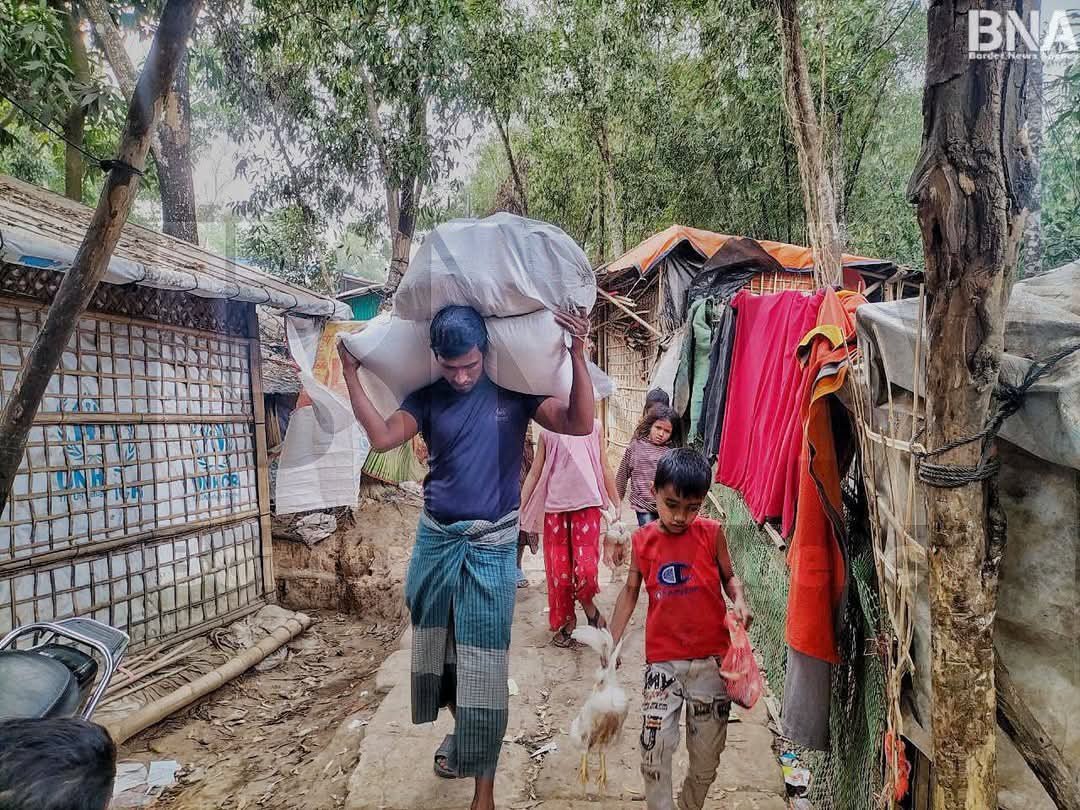After a week-long suspension, the World Food Programme (WFP) resumed food distribution in the Rohingya refugee camps today. The abrupt halt, which lasted from February 1 to 8, left thousands of vulnerable families without their essential rations, deepening the humanitarian crisis in the already fragile camps.
WFP has not publicly disclosed the reason for the temporary suspension. However, the timing coincides with the recent U.S. aid freeze, raising concerns about how international policy decisions directly affect Rohingya refugees in Bangladesh. The sudden disruption exacerbated food insecurity, forcing many families to rely on borrowed supplies or reduce their daily intake.
“We had no food for days, and many of us had to share whatever little we had,” said a Rohingya refugee from the camp. “We depend entirely on these rations, and any delay puts us in a desperate situation.”
The Rohingya community, already facing severe restrictions on livelihood opportunities, remains at the mercy of international aid. With funding shortfalls and global political shifts threatening future assistance, humanitarian organizations have warned that food crises could worsen if sustainable solutions are not secured.
While today’s resumption of food distribution brings temporary relief, the uncertainty surrounding aid cuts serves as a stark reminder of the precarious conditions Rohingya refugees endure. Advocates urge the international community to ensure uninterrupted humanitarian support to prevent further suffering in one of the world’s largest refugee settlements.
In addition to the harsh weather, the lack of food and medical care is worsening the crisis. Many refugees have not been officially registered, meaning they are not receiving food rations or healthcare services. Humanitarian groups have warned that without urgent intervention, the situation could lead to further suffering and loss of life.
The Rohingya refugees in Bangladesh have faced years of hardship since the military crackdown in Myanmar forced over 700,000 people to flee in 2017. Now, as a new wave of refugees arrives, they find themselves in an equally dire situation, struggling to survive in a place that is meant to offer safety.
Community members and human rights groups are calling on international organizations, NGOs, and the Bangladeshi government to address this growing crisis. They emphasize that immediate winter aid, including blankets, proper shelter, and medical supplies, is critical to preventing further suffering.
As the winter continues, the fate of these refugees remains uncertain. Without urgent action, their struggle for survival will only become more desperate.






